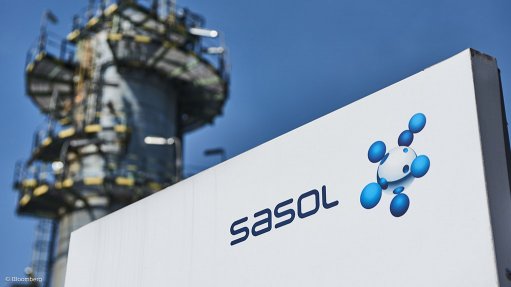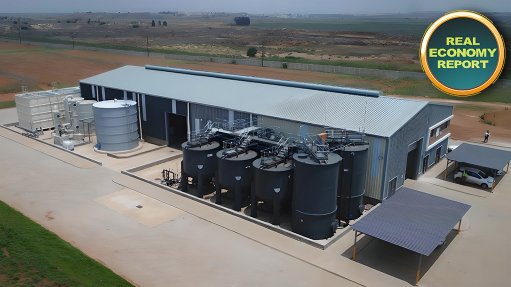Onus largely on private sector to recover economy, says Deloitte
With the 2024/25 national Budget not having provided much relief to taxpayers, and the economy having a high debt to gross domestic product (GDP) ratio and slow growth rates, South Africans need to redefine resilience, says consultancy Deloitte.
“As government opens up sectors to more private investment, there is hope that corporates will be able to provide the impetus to bolster the economy,” said Deloitte Africa tax and legal MD Itereleng Kubeka.
The country’s gross loan debt has grown from R1.58-trillion in 2013/14 to R5.21-trillion in 2023/24, which National Treasury will help address with funds from the Gold and Foreign Exchange Contingency Reserve Account that is worth R500-billion.
The plan is to draw down R150-billion over three years, but Deloitte explains in its post-Budget commentary for 2024/25 that this will need a formal agreement with the South African Reserve Bank and for legislation to be amended in Parliament to ensure sufficient solvency buffers are in place.
Kubeka pointed out during a post-Budget commentary briefing that there was concern that dipping into the gold and currency reserve was a one-off windfall that did not address the major issues of economic growth and spending efficiency.
Deloitte Africa acting chief economist Hannah Marais stated that national government’s ongoing support around structural economic reforms had been positive, particularly in the critical network industries that were energy and logistics.
She highlighted that the country had seen underinvestment in the last 15 years, with investment spend being less than half as a percentage of GDP than where it should be.
“It is promising to see public investment commitments, but the challenge remains on capacity and building pipelines of bankable projects. While Treasury has pencilled some investments in the Budget, are State-owned enterprises (SOEs) able to deliver on the funding that has been set aside?”
Marais believes that although the reduction of debt service costs is positive, the country needs a restructuring of national expenditure, including the salary bill for public servants.
On the other hand, the economic outlook for South Africa provides scant comfort, with only 0.6% GDP growth predicted for 2023. The outlook is more encouraging in the medium term, with an average 1.6% a year growth forecast.
GDP growth has averaged only 0.8% since 2012, which needs to be significantly improved if the country’s high levels of unemployment and poverty are to be addressed.
“Achieving an average of 1.6% growth in the medium term, although double this past average, is arguably not sufficient to turn the tide,” Kubeka said.
As Treasury continues on its path of fiscal consolidation, the budget deficit is expected to reduce to 4.5% of GDP in 2024/25 and to 3.3% of GDP in 2026/27.
Kubeka noted that there were no silver bullet solutions that national government could table to address South Africa’s economic growth crisis; however, maintaining a fiscal policy stance that prioritised macroeconomic stability and stabilised debt remained important to unlock growth and free up developmental spending.
She also deems it important that government enhance the quality of its spending and minimise inefficiencies.
While the Minister announced R943-billion in infrastructure investment by government over the next three years, much greater capital investment would be required, not just through delivery by the public sector, but with the intent of crowding in the private sector via public-private partnerships, while enhancing the quantity and quality of infrastructure delivery by government, Deloitte reported.
With the bulk of the outlined medium-term investment noted to be in the energy, freight and logistics, and water sectors, and with more than half of this expected to be delivered by relevant SOEs, this also required that speedy reforms and turnaround plans at relevant SOEs and in the sectors they operate were implemented, to attract private participation, improve business sentiment, and unlock private investment.
While Treasury acknowledges that Eskom and Transnet are implementing reforms as per their respective debt-relief and guarantee framework agreements, challenges facing these entities remain.
Meanwhile, Deloitte senior associate director Billy Joubert said government rightly did not raise most of the taxes impacting consumers, which was positive, however, it did introduce the global minimum tax, in line with the Organisation for Economic Cooperation and Development’s base erosion and profit-sharing framework.
The legislation has been released for public comment and will apply to multinational enterprises with consolidated revenues of €750-million or more. Those that fall within the scope will be required to pay a minimum tax of 15% in each jurisdiction in which the multinational enterprise operates.
Treasury had indicated that it expected the global minimum tax rules would result in an increase in corporate tax collections of R8-billion in 2026/27, but Joubert questioned the practicalities of the legislation and said it would be a huge administrative burden for taxpaying multinationals.
Meanwhile, Deloitte is encouraged by the investment allowance that will be made available for new investments from March 1, 2026, in new energy vehicles (NEVs) – which should encourage the production of electric vehicles in South Africa.
For every R1 an automotive manufacturer invests in NEVs, they will receive a 13.5c tax benefit.
Treasury has further reprioritised R964-million which will be used largely as grant funding under the Automotive Investment Scheme to support the transition to NEVs.
Joubert said the automotive industry had historically managed to attract a lot of investment, hence it was crucial to empower manufacturers to stay up to date.
Comments
Press Office
Announcements
What's On
Subscribe to improve your user experience...
Option 1 (equivalent of R125 a month):
Receive a weekly copy of Creamer Media's Engineering News & Mining Weekly magazine
(print copy for those in South Africa and e-magazine for those outside of South Africa)
Receive daily email newsletters
Access to full search results
Access archive of magazine back copies
Access to Projects in Progress
Access to ONE Research Report of your choice in PDF format
Option 2 (equivalent of R375 a month):
All benefits from Option 1
PLUS
Access to Creamer Media's Research Channel Africa for ALL Research Reports, in PDF format, on various industrial and mining sectors
including Electricity; Water; Energy Transition; Hydrogen; Roads, Rail and Ports; Coal; Gold; Platinum; Battery Metals; etc.
Already a subscriber?
Forgotten your password?
Receive weekly copy of Creamer Media's Engineering News & Mining Weekly magazine (print copy for those in South Africa and e-magazine for those outside of South Africa)
➕
Recieve daily email newsletters
➕
Access to full search results
➕
Access archive of magazine back copies
➕
Access to Projects in Progress
➕
Access to ONE Research Report of your choice in PDF format
RESEARCH CHANNEL AFRICA
R4500 (equivalent of R375 a month)
SUBSCRIBEAll benefits from Option 1
➕
Access to Creamer Media's Research Channel Africa for ALL Research Reports on various industrial and mining sectors, in PDF format, including on:
Electricity
➕
Water
➕
Energy Transition
➕
Hydrogen
➕
Roads, Rail and Ports
➕
Coal
➕
Gold
➕
Platinum
➕
Battery Metals
➕
etc.
Receive all benefits from Option 1 or Option 2 delivered to numerous people at your company
➕
Multiple User names and Passwords for simultaneous log-ins
➕
Intranet integration access to all in your organisation




















